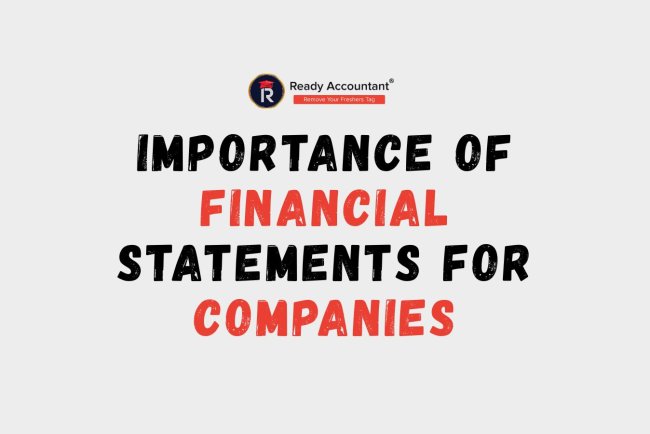The 7-Step Audit Process Every Accounting Student Should Know
The 7-step audit process is a vital skill for accounting students, ensuring financial records are accurate and trustworthy. It includes: 1. Planning (studying the business and setting goals), 2. Checking Internal Controls (reviewing rules to prevent errors), 3. Risk Assessment (finding risky areas), 4. Collecting Evidence (gathering documents like receipts), 5. Testing Data (verifying records), 6. Giving an Opinion (deciding if records are correct), and 7. Writing a Report (summarizing findings and suggestions). Mastering this process prepares students for careers in auditing, accounting, taxation, or finance. Courses like Certified Corporate Accounting, SAP FICO, and Taxation (Income Tax & GST) from top institutes provide practical training to succeed in these roles
It’s a clear, step-by-step method to check if a company’s financial records are correct, follow rules, and can be trusted. Learning this process helps you do well in exams and prepares you for jobs in accounting, auditing, taxation, or finance. Below is an easy-to-understand guide to the 7-step audit process, with simple examples and tips on how courses like Certified Corporate Accounting, SAP FICO, and Taxation (Income Tax & GST) can help you succeed.
Why Auditing Is Important for Students
Auditing makes sure a company’s financial statements are honest, which builds trust with investors, banks, and the government. For students, learning auditing gives you:
- Useful Skills: Spot mistakes, stop fraud, and ensure companies follow laws.
- Job Advantage: Companies want people who know auditing, not just theory.
- Many Career Options: Work in accounting firms, company finance teams, tax consulting, or risk management.
The 7-Step Audit Process Made Simple
Here are the 7 steps explained in easy words, with examples and tips for students:
1. Planning the Audit
- What it is: The auditor learns about the company, finds risky areas, and plans what to check and when.
- Why it matters: Good planning saves time and avoids mistakes.
- For students: This teaches you to think ahead and organize your work.
- Example: For a shoe store, the auditor might focus on checking stock because it’s easy to lose track of inventory.
- Tip: A Certified Corporate Accounting course teaches you planning with real examples.
2. Checking Internal Controls
- What it is: Auditors look at the company’s rules, like how they approve payments or track money, to prevent errors or cheating.
- Why it matters: Good rules keep the company’s finances safe.
- For students: SAP FICO training shows how companies use software to manage these rules.
- Example: A company might need a manager’s approval for payments over ₹50,000. The auditor checks if this happens.
- Tip: Learn how software makes these rules easier to follow.
3. Finding Risks
- What it is: Auditors figure out where problems, like mistakes or fraud, are most likely to happen.
- Why it matters: Focusing on risky areas makes the audit faster and better.
- For students: Certified Corporate Accounting courses teach you to find risks in financial records.
- Example: A café with lots of cash payments has a higher chance of theft, so auditors check cash records closely.
- Tip: Practice spotting warning signs in financial data.
4. Collecting Evidence
- What it is: Auditors gather documents like bills, receipts, or bank statements to prove the records are correct.
- Why it matters: Evidence shows if the company’s numbers are true.
- For students: Taxation courses (Income Tax & GST) teach you to collect documents like GST bills for audits.
- Example: To check sales, auditors compare sales receipts with GST filings.
- Tip: Pay close attention to details when looking at documents.
5. Testing the Data
- What it is: Auditors check the records by:
- Substantive Tests: Making sure account balances are correct (e.g., checking bank account money).
- Control Tests: Checking if the company’s rules work (e.g., verifying approvals).
- Why it matters: Testing proves the records are reliable.
- For students: Practice testing with real data in top accounting courses.
- Example: Auditors might check 10 random expense receipts to see if they match the records.
- Tip: Build skills to find errors in big sets of numbers.
6. Giving an Audit Opinion
- What it is: Auditors decide if the company’s financial records are correct. Their opinion can be:
- Clean (Unqualified): Everything is fine.
- Qualified: Small problems found.
- Adverse: Big mistakes or fraud are found.
- Disclaimer: Not enough information to decide.
- Why it matters: The opinion affects how much people trust the company.
- For students: This teaches you to make fair and honest decisions.
- Example: If a company hides profits, the auditor might give an “Adverse” opinion.
- Tip: Learn to make decisions based on facts, not guesses.
7. Writing the Audit Report
- What it is: Auditors write a report explaining what they found, their opinion, and suggestions to fix problems.
- Why it matters: The report helps the company improve and follow rules.
- For students: Top accounting institutes teach you to write clear reports.
- Example: A report might suggest using better software to track money safely.
- Tip: Practice writing short, clear reports.
How Auditing Helps Your Career
Learning the 7-step audit process prepares you for jobs like:
- External Auditor: Work at big firms like Deloitte or EY.
- Internal Auditor: Check a company’s own records.
- Tax Consultant: Help with GST or income tax audits.
- Finance Manager: Manage a company’s money and risks.
Courses like Certified Corporate Accounting, SAP FICO, and Taxation (Income Tax & GST) give you hands-on training with real projects, making you ready for these jobs.
Picking the Right Course
To become great at auditing, choose a course or institute that offers:
- Hands-On Training: Real projects, internships, and case studies.
- Software Skills: Learn tools like SAP FICO for modern audits.
- Tax Knowledge: Understand GST and income tax for audits.
- Job Help: Support to find jobs and connect with companies.
The best accounting institute in Kolkata or the best accounting course in India will give you these skills for a successful career.
Conclusion
The 7-step audit process—planning, checking controls, finding risks, collecting evidence, testing, giving an opinion, and writing a report—is key to keeping financial records honest and trustworthy. By learning these steps, you gain skills that companies need in accounting, auditing, and finance. Courses like Certified Corporate Accounting, SAP FICO, or Taxation (Income Tax & GST) at a good institute to build a strong career. With the right training, you’ll be ready to shine in the world of finance and auditing
What's Your Reaction?



















